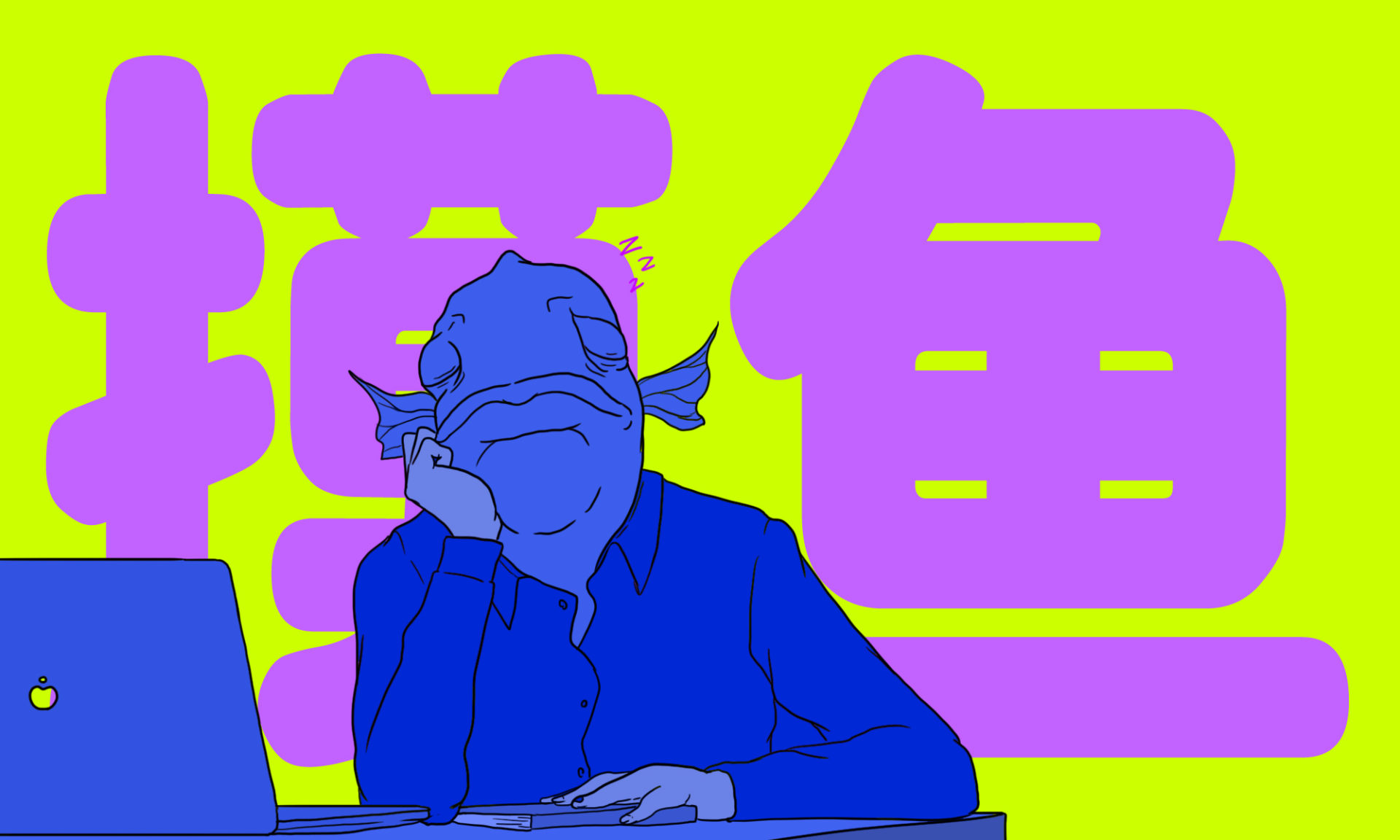Feeling fish — phrase of the week
Chinese corporate grunts, like everyone else working from home because of COVID-19, have to make sure their bosses don’t think they’re just taking it easy.

Our phrase of the week is: feeling fish (摸鱼 mō yú).
Context
Confined to their apartments or worried about coming lockdowns, people in Chinese cities are getting used to working from home, or 居家办公 jūjiā bàngōng.
One common concern of employees of big tech firms is how to make sure their boss knows they are working, and not slacking off, at home as discussed in a recent article in tech blog 36Kr:
My boss is concerned I am slacking off when I should be working from home. How do I convince him/her how hard I am working?
居家办公,老板怕我摸鱼:怎么才能让领导知道我干了很多活?
jūjiā bàngōng, lǎobǎn pà wǒ mō yú: zěnme cáinéng ràng lǐngdǎo zhīdào wǒ gànle hěnduō huó?
Translation
The phrase, slacking off, literally means feeling fish.
This modern slang word originally comes from the idiom, 浑水摸鱼 hún shuǐ mō yú, which means catching fish in troubled waters, or profiting from a chaotic situation.
The original idiom is traced to the 36 Stratagems (三十六计 sān shí liù jì) — an adjunct to Sun Tzu’s Art of War, which offers 36 ways to misdirect, deceive or confuse your enemy.
In more recent times, catching fish in troubled waters is found in Four Generations Under One Roof (四世同堂 sìshì tóngtáng), a 1944 novel by Lǎo Shě 老舍 describing the life during the Japanese Occupation.
There is no explanation for when feeling fish started to mean slacking off, but in recent years, the phrase has become popular among overworked employees coping with China’s 996 work culture, looking for ways to switch off and relax.
As a sign of its popularity, in March last year, the release of an online course, Introduction to Feeling Fish (摸鱼学导论 mōyúxué dǎolùn) by a Tsinghua University student became an immediate viral hit.
But for people under China’s current lockdowns, the enjoyment of feeling fish is less important than making sure that their hard work doesn’t go unnoticed while working from home.
- If you enjoyed this, check out Andrew Methven’s Slow Chinese 每周漫闻 newsletter, a resource to help you master modern Mandarin and understand how people speak Chinese today.






